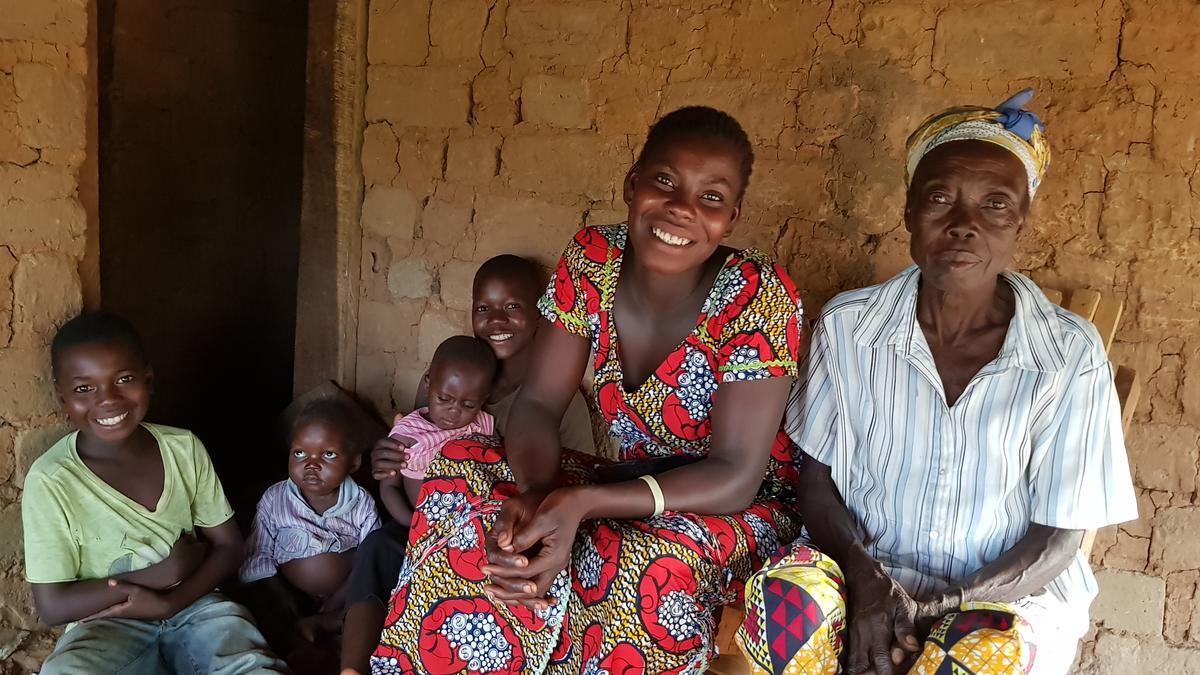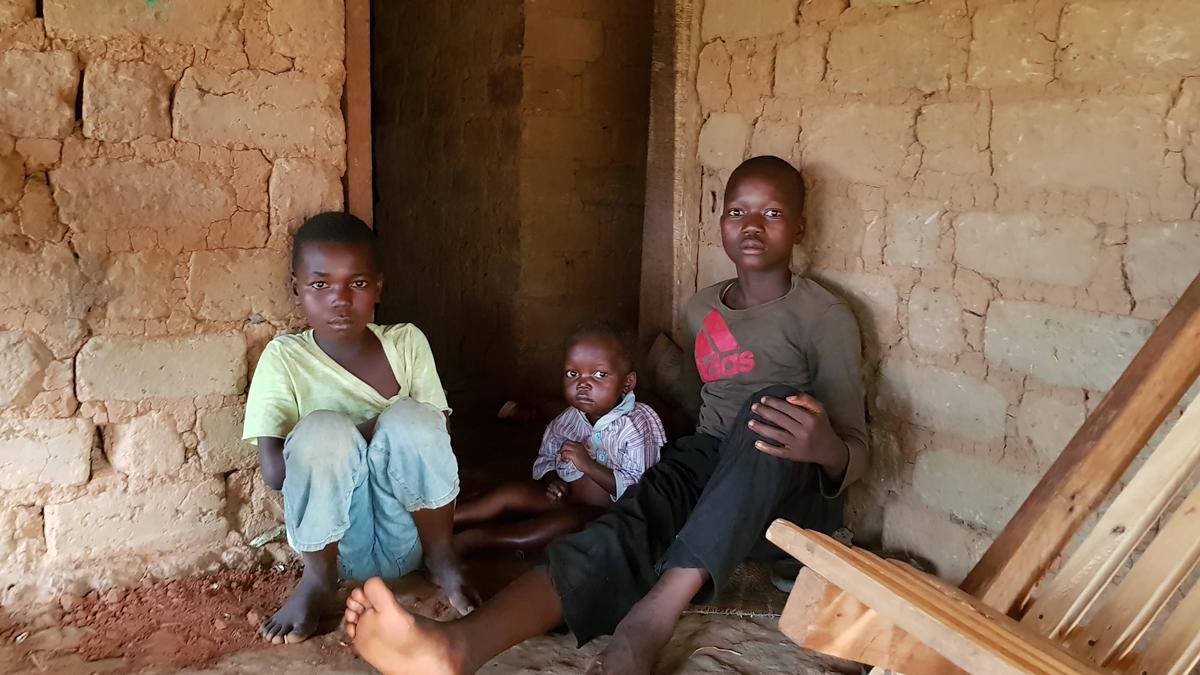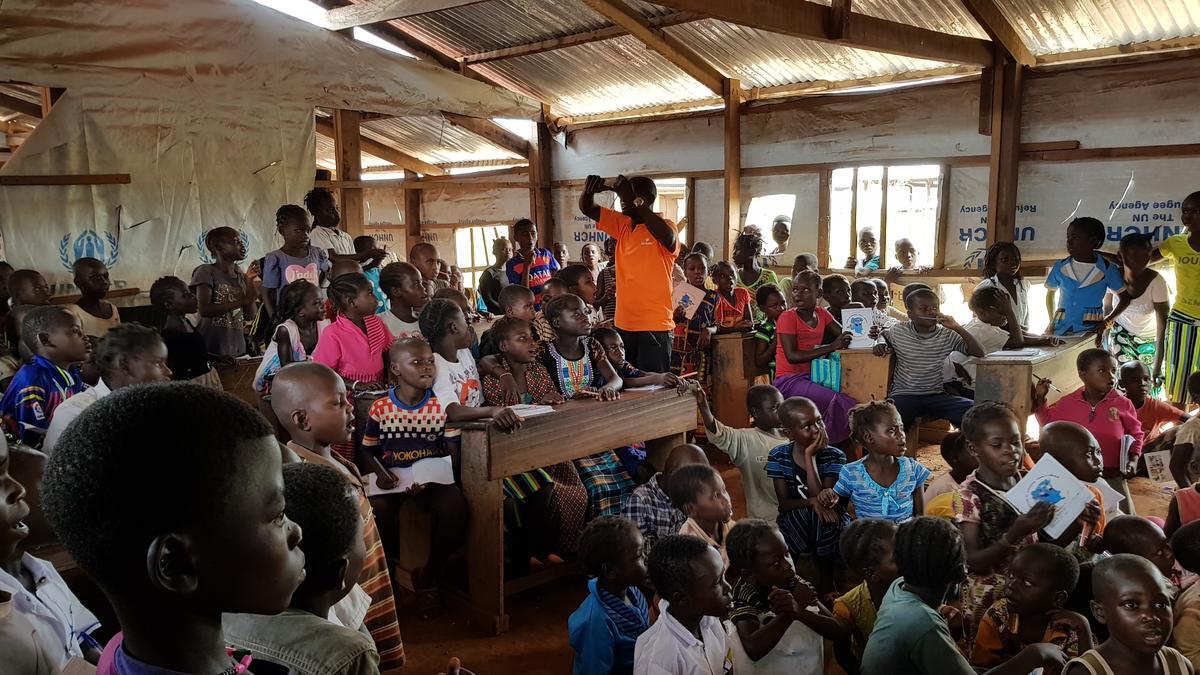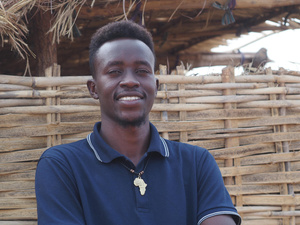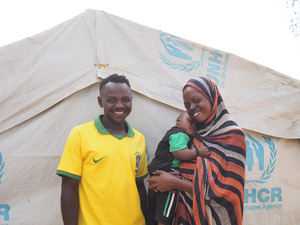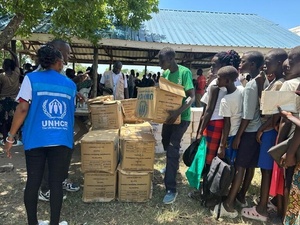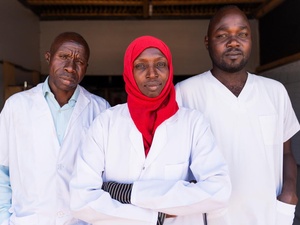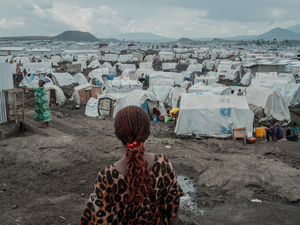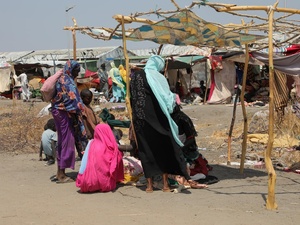Central African refugee shines at regional spelling bee
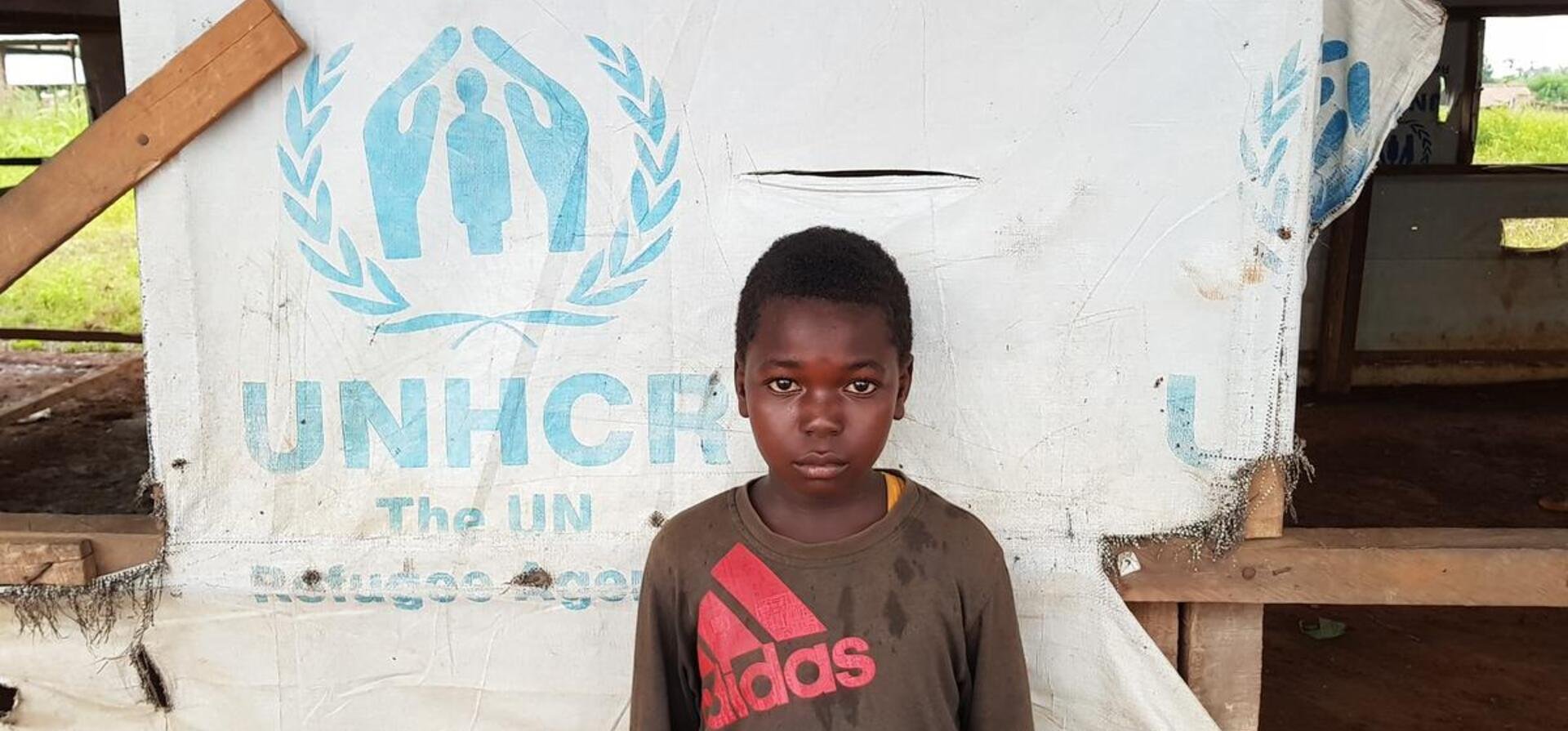
Central African refugee shines at regional spelling bee
Today is World Children's Day - a day dedicated to children and their welfare. We mark this day by celebrating Charli who has a curiosity and inquisitiveness that goes way beyond his years. At only 10, the Central African refugee has achieved a mean feat – taking first place at a district spelling bee in the Democratic Republic of the Congo.
His school in Inke refugee camp, where he lives, is fraught with challenges as classrooms are mostly made out of plastic sheeting, often overcrowded and with limited books for the eager students. Learning in these circumstances can be extremely challenging.
Despite these difficulties, Charli continues to flourish, reading with passion and learning new words.
“I read at every occasion, even at night,” says Charli. “Everything I can get my hands on really. I wish we had more books.”
UNHCR, the UN Refugee Agency, set up Inke in 2013 when intense fighting broke out in the Central African Republic (CAR), forcing thousands to flee. Now, over 17,700 refugees live here.
“I read at every occasion, even at night. Everything I can get my hands on really.”
Nearly 64 per cent of the refugee population in the DRC are minors, aged 17 years or below. UNHCR supports these children by helping integrate them in the Congolese education system, and building and rehabilitating schools for both refugees and the local population.
In marking World Children's Day today, Ann Encontre, UNHCR’s Regional Representative based in Kinshasa explains that education for refugees like Charli is a crucial tool for protecting them.
"Every child has a right to be in school, learning, safe from harm and able to fulfil their potential," she says. "It is a fundamental right for every child and we are committed to protecting that right."
UNHCR also covers some school fees and school materials, such as uniforms and stationery. Charli’s school is among the schools that UNHCR supports and performs better than a number of institutions in this part of the DRC. About 20 per cent of the students are Congolese coming from surrounding villages.
"Every child has a right to be in school, learning, safe from harm and able to fulfil their potential,"
Teachers here quickly noticed Charli’s keenness and nominated him for a district spelling bee where he came first, ahead of hundreds of other refugee and local Congolese students.
Winning automatically qualified him for the bigger provincial contests, where competition was tougher. Charli admits that the preliminary rounds were difficult and he had to practice a lot.
“My school helped me and gave me spelling lessons,” he recalls.
Ahead of the final round, he only had two days to prepare and UNHCR facilitated his trip and overnight stay to Mobayi-Mbongo, the town where the contest was held.
“We slept so well that night,” he recalls happily.
It was the first time he left his grandmother and caretaker, Odette, who also cares for four other grandchildren by herself.
Charli was orphaned as a child and his remaining family fled CAR when their town was attacked in 2013.
“Some of our friends were killed, but we made it across [the river] all together. We were picked up and brought to the camp after three days,” says Odette.
Educating the children in her care has not been easy, but Odette is determined to make sure they have every opportunity for a better future, especially with Charli’s recent accomplishments.
“My biggest concern at the moment is my grandchildren’s education,” she adds. “I would like to see their education supported even more.”
Odette’s concerns are not unfounded as funding gaps are limiting UNHCR’s ability to cover all education needs, particularly for secondary education.
“Almost all our support is dedicated to primary education, yet pursuing an education until secondary school is crucial,” explains UNHCR's Encontre. “It considerably reduces young people’s exposure to crime, forced recruitment, or negative coping mechanisms such as survival sex.”
She adds that it is important for young refugee students like Charli to not only access school, but also to remain in school, to ensure they have a chance for a brighter future.
Odette tends a small garden outside the camp that provides food and an income to care for Charli and the other children. She also bakes pastries which her granddaughter sells. Her resolve is a constant source of inspiration for Charli. He channeled her energy as he prepared to face 11 other fifth graders at the provincial spelling bee.
He knew he would struggle with homonyms, often mixing up “nez” and “né” (“nose” and “born”) during the practice runs. In the end, he came in second.
“If I could, I would do the contest again.”
While everybody congratulated him on the result, he couldn’t hide a hint of disappointment.
“I would have liked to do better,” he admits. “If I could, I would do the contest again.”
However, the annual contest is organized for fifth graders only and aims to help them prepare for the final exams at the end of the sixth grade. After that, students who can afford it proceed to secondary school.
Charli hopes to continue with his studies and has big dreams.
“One day I would like to return to the CAR and become the Minister of Education,” he says.


